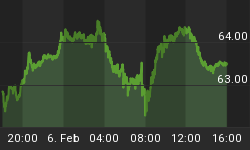"Opportunities are never lost; someone will take the one you miss." ~ Author Unknown
In the 1926-1927 recession, the Dow roared from a low of 135 to a high of 200 towards the end of 1927, for a gain of 48%; more importantly though, it had recovered all its losses by the first quarter of 1927.
The great depression, which has come to be known as the mother of all financial disasters lasted from 1930-1939, and the Dow shed almost 90% of its value; from a high of 381.17, it dropped as low as 41.22 before putting in a bottom. By 1934 it had gained about 120% from its lows, and by 1937, the Dow had recovered almost 60% of its losses. The situation was further exacerbated with very high interest rates and the Fed's inability to act rapidly. This time round the Feds have moved very rapidly to introduce liquidity into the system, and dropped rates to historic lows, in an attempt to reduce the carnage. Note we are not fans of the Federal Reserve, as they are the ones that helped fuel the current disaster in the first place.
In the short 8 month recession of 1945, the markets gained roughly 19%
In the one year depression from 1948-1949, the markets tacked on 15%
During the oil crisis, which lasted from 1973-1974, the Dow corrected 50% (from 1060 to roughly 570), but by the end of 1975, it was down only 14% and by Oct 1976, it had virtually recovered all its losses. Many sectors actually started to rally well in advance of the general market, and by the time the Dow had recovered all its losses, many stocks in these sectors were showing gains of several hundred percentage points.
During the 2 year recession of 1980-1982, the Dow once again initially tanked and after putting in a low at roughly 770 in August 1982, it mounted a 37% rally (low to high) and by the end of 1982, the Dow had recovered completely, and was at a break even point. Once again certain sectors diverged well in advance of the markets, and were most likely already showing gains in excess of several 100% by the time the Dow reached the break even point.
1990-1991; during this recession, the Dow corrected rather strongly, but by the end of 1992 it had recovered all its losses and then some; certain sectors were already showing huge gains well before the Dow and the general markets recovered all their loses. By the end of 1993 the Dow had gained roughly 26%.
The massive correction from 2000-2002 roughly wiped out over 5 trillion in market value and was arguably one of the worst modern financial disasters ever to hit the markets. Towards the end of 2002, the Dow had bottomed (7200) and by the end of 2003, it had recovered well over 90% of its value. The Dow then went on to mount a bull run that lasted over 5 years. Once again several sectors roared to life well in advance of the markets. Examples of such sectors were oil, gas and precious metals; some stocks in these sectors were already showing gains of well over 100%, and by the time the Dow had recovered 90% of its losses, these stocks were already up several hundred percentage points.
The point is very clear here, that almost every single disaster has yielded tremendous opportunity for those who were able to take the long term view. Instead of selling everything and fleeing for the hills, investors should be buying and or at the very least holding onto their positions; the time to sell is when others are singing and jumping with joy and the time to buy is when blood is freely flowing in the streets.
The second lesson here is that government officials and top analysts almost always acknowledge a recession when it's almost over and as the markets are forward looking, they usually mount a rally shortly after this admission. The current recession will probably take a path that will be a mixture of the great depression and the recession of 2000-2002. It will not be as severe as the great depression because of the following reasons;
- Interest rates have been lowered to almost zero, where as before they were raising rates,
- The Feds are aggressively lending to financial institutions, where as before they were shying away from doing
- And finally we now have a global economy.
This does not imply that that we are fully out of the woods and that the markets are simply going to roar upwards from these levels; what it does imply is that stocks are selling at prices that may never been seen again for decades. The early bird gets the worm; the late bird only gets the germs. Investors should not let fear overwhelm them; fear and euphoria play nasty tricks on one's mind; opportunity is made to look like a disaster and disaster looks like opportunity. We still believe that the current economic situation will worsen before it gets better, but if you wait till the majority deem that it is safe to venture forth and purchase stocks, the train will have left the station, and you will be left holding a worthless ticket.
"The one permanent emotion of the inferior man is fear - fear of the unknown, the complex, the inexplicable. What he wants above everything else is safety." ~ Henry Louis Mencken















